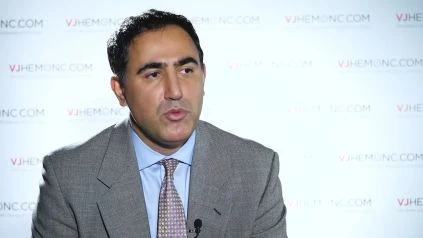The IDH1 and IDH2 metabolic enzymes are mutated in patients with acute myeloid leukemia (AML), prompting the pharmaceutical development of specific mutant IDH enzyme inhibitors; ivosidenib and enasidenib, respectively. From the 2018 Society of Hematologic Oncology (SOHO 2018) Annual Meeting in Houston, TX, Amir Fathi, MD, MPH, of Dana-Farber Cancer Institute, Boston, MA, highlights findings from clinical trials that used ivosidenib and enasidenib in a relapsed and refractory setting involving patients with AML. Dr Fathi reports a good overall median survival in Phase I and Phase II data, with these drugs providing a twenty percent rate of complete remission, even in those with complete or refractory disease. Although IDH inhibitors are not yet approved by the FDA, there are a series of selective FLT3 inhibitors that are currently undergoing advanced clinical trial studies, which Dr Fathi suggests could soon be used in the relapsed and refractory settings as monotherapy.
[the_ad id="32629"]

